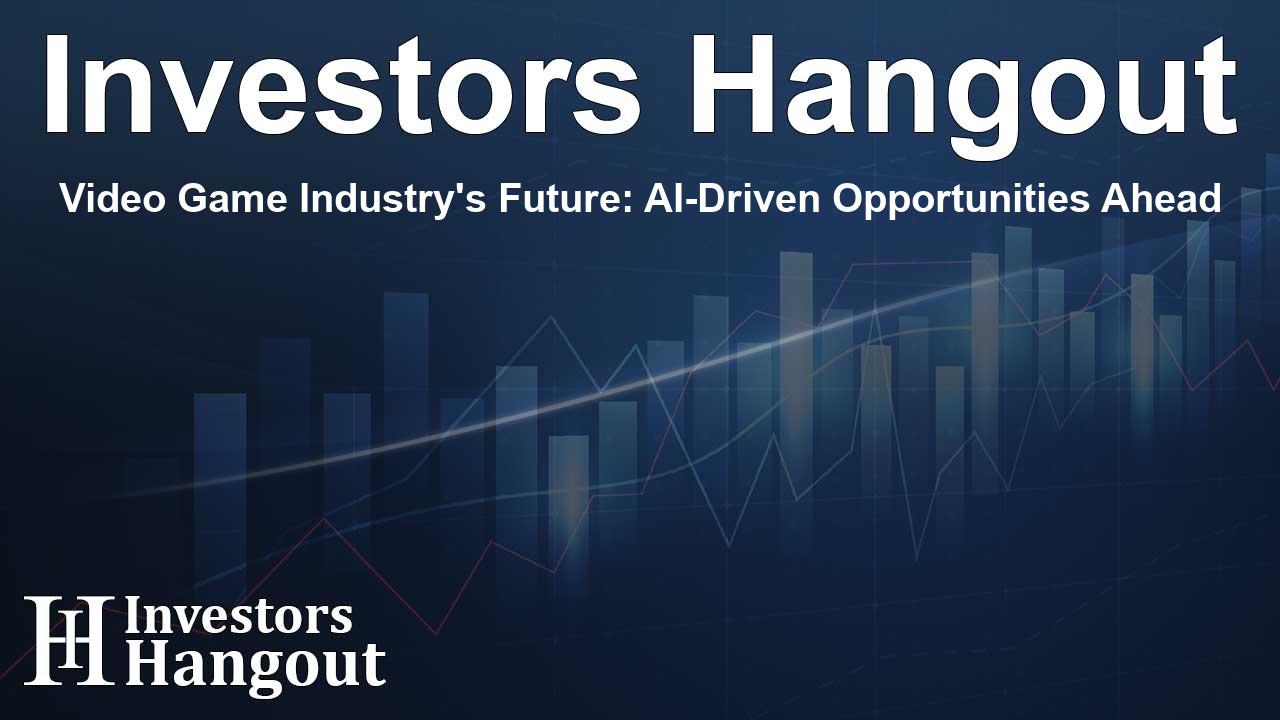Video Game Industry's Future: AI-Driven Opportunities Ahead

AI's Role in Job Creation within the Gaming Industry
Regenerative AI is poised to reshape the future of the video game industry. Recently, Strauss Zelnick, CEO of Take-Two (NASDAQ: TTWO), confidently stated that this technology will lead to an increase in employment opportunities, despite significant job losses in the sector. He emphasized the idea that innovation could enhance productivity and ultimately increase jobs.
The Insights from Industry Leaders
During an engaging discussion at The Paley Center for Media, Zelnick argued against the notion that AI would eliminate jobs. He suggested that advancements in technology historically correlate with economic growth, stating, "Technology always increases productivity, which in turn increases GDP, which in turn increases employment." This perspective highlights a crucial shift in thinking about AI's potential benefits.
The Contemporary Struggles of Game Developers
However, the current landscape tells a different story. A report released by the Game Developers Conference unveiled that one in ten game developers experienced layoffs in the previous year. Additionally, a substantial portion of the surveyed developers (30%) expressed concerns about AI's negative impact on the industry, marking a notable increase from the previous year's findings.
The Impact of AI on Major Companies
Amidst these shifts, Microsoft (NASDAQ: MSFT) has also faced challenges, recently letting go of approximately 9,000 workers, with many cuts affecting their gaming division. Some of the impacted employees were involved in AI projects, specifically designed to enhance gaming experiences in popular titles like Candy Crush. These decisions illustrate the complex balance companies must navigate between leveraging AI and workforce reduction.
AI in Game Development Practices
Reports suggest that various companies began integrating regenerative AI into their development processes after implementing significant workforce reductions. Many production studios have adopted this technology, viewing it as a way to bolster efficiency and innovation in their creative processes.
Protecting the Value of Human Contribution
Zelnick has reiterated a commitment to valuing human work. He acknowledged the role AI plays in the industry but maintained that it cannot replace the creative genius of people. According to him, "The tools may be digital, but the creative genius is human." He hopes that companies will pay for the contributions of individuals once their work has been replicated by AI, highlighting an evolving dialogue about ethics in AI implementation.
Embracing AI as a Tool
Looking toward the future, Zelnick encourages viewing AI as an additional tool rather than a replacement for human talent. He believes the transition will foster greater efficiency, a principle already established in the industry since its beginning. As companies navigate these changes, the challenge lies in leveraging AI while ensuring the human element remains relevant.
Industry Perspectives on AI
Not every voice in the gaming sector shares Zelnick’s optimistic view. Brian Fargo, founder of inXile Entertainment, expressed his concerns about potential job losses due to AI. Despite utilizing it for repetitive tasks, he remains cautious, highlighting that his company compensates external contractors to refrain from using AI, showing a commitment to preserving traditional roles within the industry.
Future Innovations at Electronic Arts
In an intriguing move, Electronic Arts (NASDAQ: EA) announced plans to incorporate AI technologies to enhance the creative capabilities of their artists and developers. This strategy aims to reimagine the content creation process, though it has been met with mixed reactions from staff, who worry about the implications for job security amidst these shifts.
Conclusion
The video game industry stands at a crossroads, facing significant technological advancements alongside notable workforce reductions. As companies like Take-Two, Microsoft, and Electronic Arts navigate this changing landscape, the future will depend on how they balance the integration of AI technology while valuing human creativity and employment. The ongoing conversation about AI's impact on the industry will likely continue as new developments arise.
Frequently Asked Questions
How is regenerative AI expected to impact employment in gaming?
According to industry leaders like Strauss Zelnick, regenerative AI is believed to create more jobs within the gaming sector despite current job losses.
What percentage of game developers faced layoffs recently?
A report revealed that one in ten game developers experienced layoffs over the past year.
Which companies have recently laid off workers in the gaming sector?
Microsoft was noted for laying off approximately 9,000 workers, including many from its gaming division, due to cost-cutting measures.
How do industry leaders view AI's role in creativity?
Leaders like Zelnick emphasize that while AI can enhance productivity, human creativity remains irreplaceable in game development.
What steps is Electronic Arts taking regarding AI technology?
Electronic Arts aims to implement AI to empower their teams and reimagine content creation, though it has sparked concerns regarding potential job security among employees.
About The Author
Contact Caleb Price privately here. Or send an email with ATTN: Caleb Price as the subject to contact@investorshangout.com.
About Investors Hangout
Investors Hangout is a leading online stock forum for financial discussion and learning, offering a wide range of free tools and resources. It draws in traders of all levels, who exchange market knowledge, investigate trading tactics, and keep an eye on industry developments in real time. Featuring financial articles, stock message boards, quotes, charts, company profiles, and live news updates. Through cooperative learning and a wealth of informational resources, it helps users from novices creating their first portfolios to experts honing their techniques. Join Investors Hangout today: https://investorshangout.com/
The content of this article is based on factual, publicly available information and does not represent legal, financial, or investment advice. Investors Hangout does not offer financial advice, and the author is not a licensed financial advisor. Consult a qualified advisor before making any financial or investment decisions based on this article. This article should not be considered advice to purchase, sell, or hold any securities or other investments. If any of the material provided here is inaccurate, please contact us for corrections.
